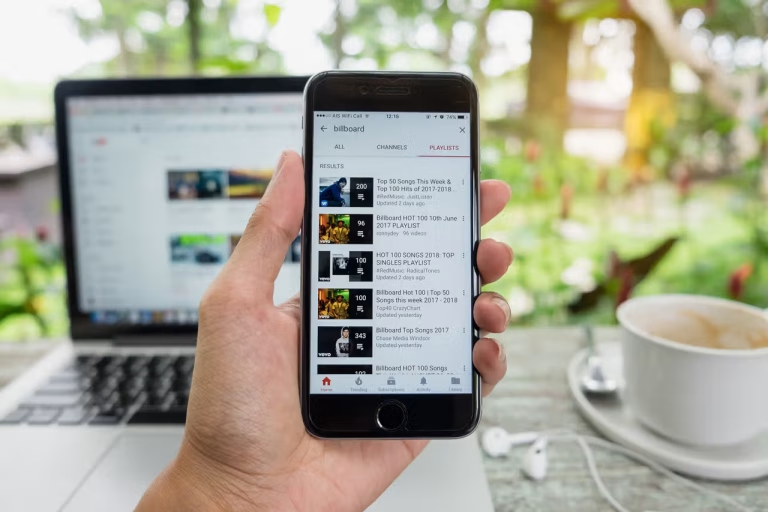How Vosita is Crafting Healthcare’s Next Chapter Through Innovation and Human Connection
The healthcare landscape is experiencing a quiet revolution, one that’s reshaping how patients and providers connect in ways previously unimaginable. At the forefront of this transformation stands a platform that’s not just digitizing healthcare it’s humanizing it. This evolution represents more than technological advancement; it’s about creating meaningful bridges between those who seek care and those who provide it.
The Silent Shift in Healthcare Expectations
Modern patients arrive at healthcare with different expectations than their predecessors. They’ve grown accustomed to seamless digital experiences in every other aspect of their lives—from ordering food to managing finances—yet healthcare has remained frustratingly analog. The disconnect between digital sophistication and healthcare accessibility has created a gap that innovative platforms are now rushing to fill.
This transformation isn’t merely about convenience; it’s about fundamentally reimagining the patient journey. When individuals can access comprehensive healthcare information, connect with qualified professionals, and navigate their medical needs with the same ease they experience in other digital interactions, the entire healthcare ecosystem benefits. Patients become more engaged, providers can focus on care rather than administrative burdens, and health outcomes improve across the board.
Vosita exemplifies this new paradigm, offering a comprehensive platform that addresses the complex web of modern healthcare needs. By creating an ecosystem where patients can seamlessly discover, connect with, and book appointments with healthcare providers, the platform eliminates traditional friction points that have long plagued the medical experience.
read more : https://miegacoanmenu.com/
Addressing the Trust Deficit in Digital Health
One of healthcare’s most significant challenges lies not in technology adoption, but in building authentic trust between patients and digital platforms. Unlike other industries where a poor user experience might mean a delayed delivery or a frustrating app interaction, healthcare stakes are inherently higher. Patients are sharing intimate details about their health, making critical decisions about their care, and trusting platforms with information that directly impacts their wellbeing.
The most successful healthcare platforms understand that trust isn’t built through flashy interfaces or aggressive marketing—it’s earned through consistent reliability, transparent practices, and genuine commitment to patient welfare. This means creating systems that prioritize accuracy in provider information, maintain strict privacy standards, and offer meaningful support when patients need guidance navigating their healthcare options.
The platform’s approach to building trust extends beyond basic functionality. By maintaining comprehensive, verified provider profiles and ensuring that patients have access to authentic reviews and detailed information about healthcare professionals, Vosita creates an environment where informed decision-making becomes the norm rather than the exception.
The Economics of Accessible Healthcare
Healthcare accessibility isn’t just a moral imperative—it’s an economic necessity. When patients can easily find appropriate care, schedule appointments efficiently, and access providers who meet their specific needs, the entire system operates more effectively. Reduced administrative overhead, decreased appointment no-shows, and improved patient satisfaction create a virtuous cycle that benefits all stakeholders.
Consider the ripple effects of improved healthcare accessibility: patients receive timely care, preventing minor issues from becoming major health crises; providers can optimize their schedules and focus on patient care rather than administrative tasks; healthcare systems overall experience reduced strain and improved efficiency. These improvements translate into measurable economic benefits while simultaneously improving health outcomes.
Digital platforms that successfully bridge the gap between patients and providers create value that extends far beyond their immediate user base. They contribute to a more efficient healthcare ecosystem, support better resource allocation, and help ensure that quality care reaches those who need it most.
The Human Element in Digital Innovation
Perhaps the most crucial aspect of successful healthcare digitization lies in preserving the human elements that make medical care meaningful. Technology should amplify human connection, not replace it. The most effective platforms recognize that behind every search query, appointment booking, and provider review is a person seeking care, often during vulnerable moments in their lives.
This human-centered approach manifests in thoughtful design decisions that prioritize clarity over complexity, accessibility over exclusivity, and genuine helpfulness over superficial convenience. When platforms maintain this focus on human needs while leveraging technological capabilities, they create experiences that feel both sophisticated and caring.
Looking Forward: The Future of Healthcare Connectivity
The evolution of healthcare connectivity is far from complete. As artificial intelligence becomes more sophisticated, as telemedicine capabilities expand, and as patient expectations continue to evolve, platforms that successfully adapt while maintaining their core commitment to patient welfare will define the industry’s future.
The most promising developments focus not on replacing human judgment and connection, but on enhancing them. This means creating tools that help providers deliver better care, systems that help patients make more informed decisions, and platforms that facilitate meaningful connections between those who seek care and those qualified to provide it.
The healthcare industry stands at an inflection point where digital innovation and human-centered care converge. Platforms that successfully navigate this convergence while maintaining unwavering commitment to patient welfare will shape how future generations experience healthcare—making it more accessible, more efficient, and more human than ever before.






